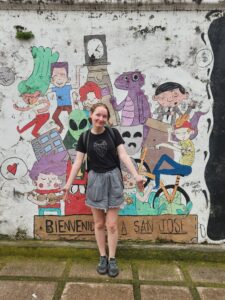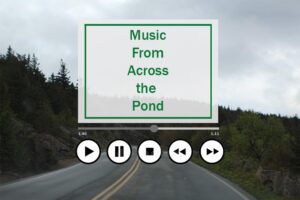Arriving at my study abroad destination was nothing like I thought it would be. When I stepped off the plane and rode the shuttle from Sofia to Blagoevgrad, Bulgaria, I was surprised at the scenery. Eastern Europe is different in many ways from western Europe. Between Sofia and Blagoevgrad, there are no towns or buildings. Mountain ranges are the only things that stand between the two cities, which are about an hour and a half drive apart from one another.
The campus felt like a different planet. It was getting dark, and the canteen-a dining facility-was not open. Anyone who has studied abroad is likely very independent. Most study abroad programs want you to figure things out for yourself. This university definitely trusts its students to figure things out on their own. The first couple of days, I felt alienated from the campus life, only taking trips to the local “Kaufland” store — a store much like K-Mart — and unpacking. I have one University of Maine student with me, but we were already growing tired of not seeing any other familiar faces or meeting new students. As it is orientation week, the majority of the campus does not move in until the weekend.
Once orientation began, it felt like freshman year of college all over again. Everyone was clinging onto one another in groups, realizing that they were not alone. Some students do understand Bulgarian, particularly those from countries that use the Cyrillic alphabet. The Americans here are all equally clueless. It is rare to find a local who speaks English well, but there are some. One of my first impressions was that the blocks of apartment buildings remind me of Soviet-era Russia. The buildings are not like what you might find in a cultural western European city, although they are unique. Of course, all the signs are in Bulgarian, so it is hard to know what any shop is.
The mountains surround the city on all sides, which is a little bit bigger in population than Portland, Maine. The winter is much harsher than I was expecting. There is a lot of snow and ice on the ground. The ice is not sanded or salted, so it is treacherous walking around, though no one wears snow boots or hats. The campus is very small, only about 1,000 students. It consists of five buildings in a row, which seems convenient until I learned about the satellite building, which is about a 10-minute walk through the winding city streets past a farmers’ market and many Bulgarian shops.
Sofia is far away, and this is from where most flights arrive and depart. Thessaloniki, Greece is equidistant, but this requires crossing a border. Apparently in the winter, the power frequently goes out, and the Bulgarian-Greek border will be out of commission until it comes back on.
There is a smoking culture here that is very different from the United States. Most of the European students I have met smoke regularly. The restaurant experience is very different from the U.S. Bulgarian service is notoriously bad, and the restaurant staff does not regularly check on you. As we found out the hard way, food is not brought out all together or even for both people at once. Sometimes one must wait 40 minutes for a side dish to accompany the meat. However, this reflects the laid-back culture, which is forcing us Americans to slow down, take everything in, and socialize and enjoy the experience. I am hoping that by the end of the semester, I will have learned to accept this as a part of my way of life.







